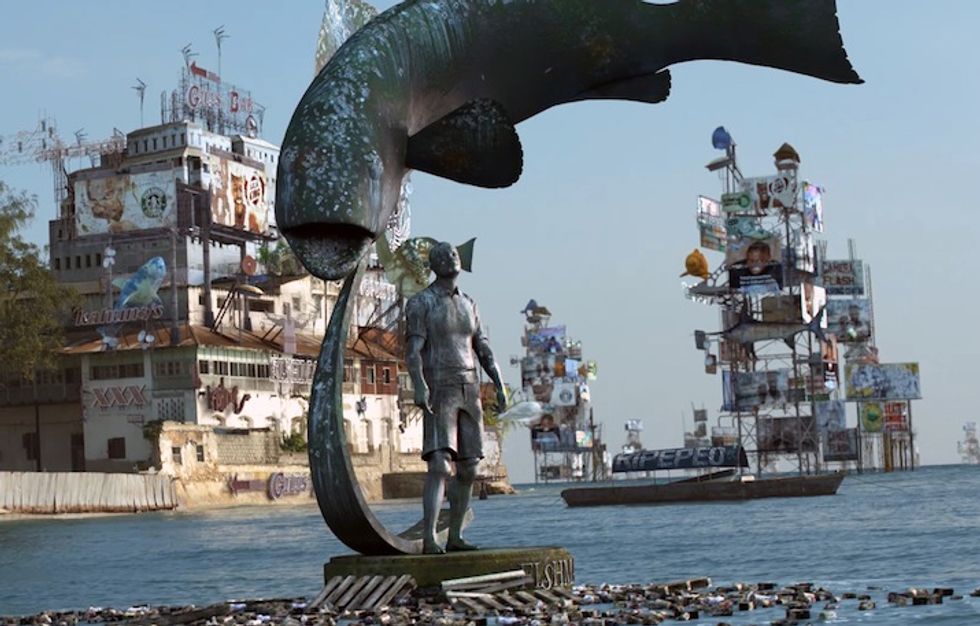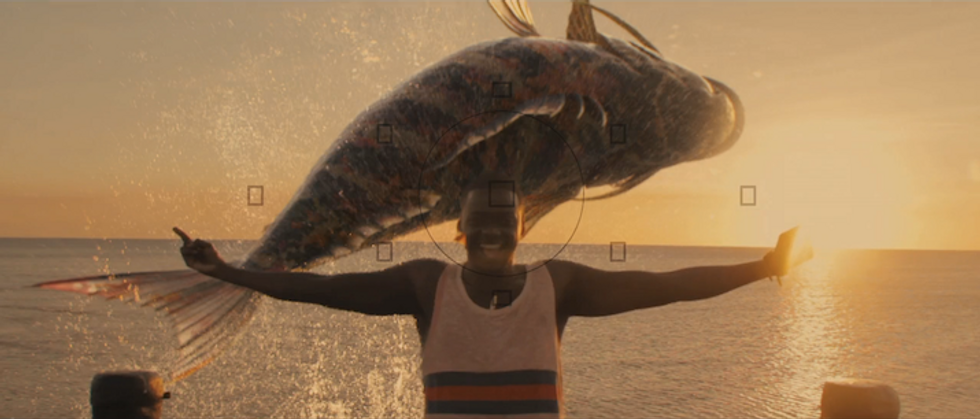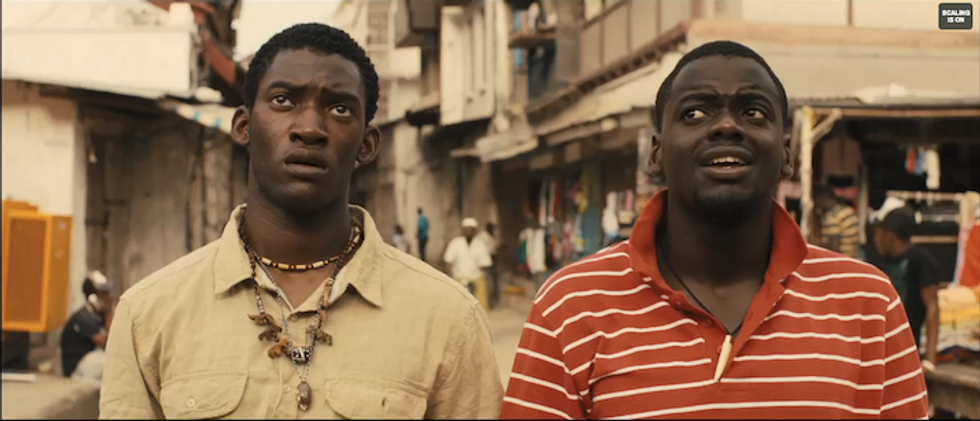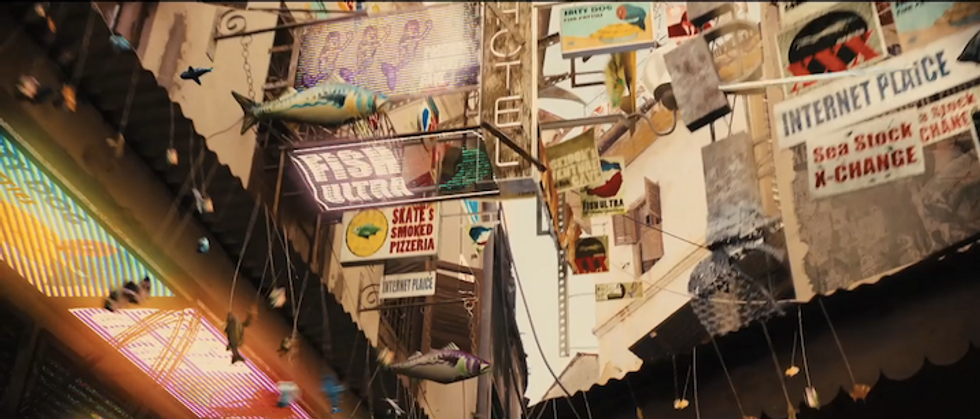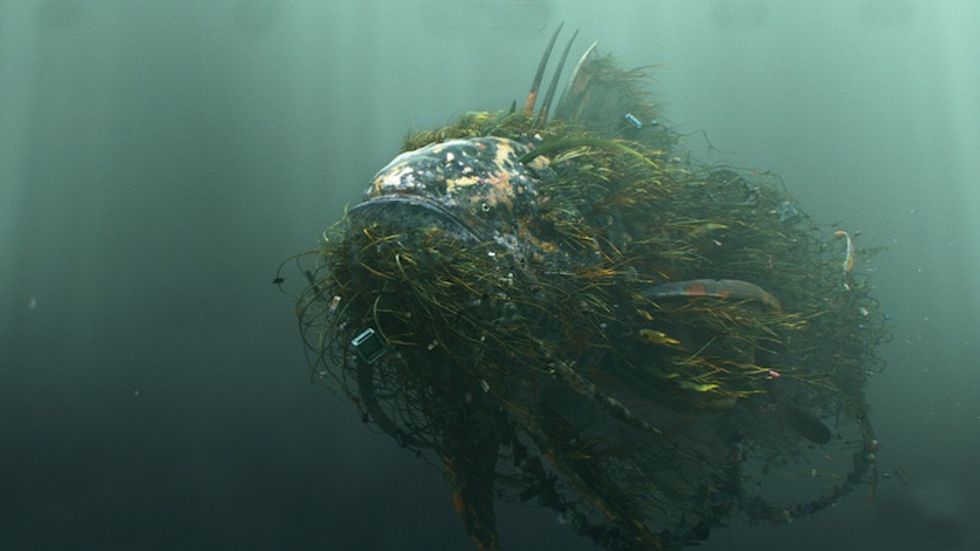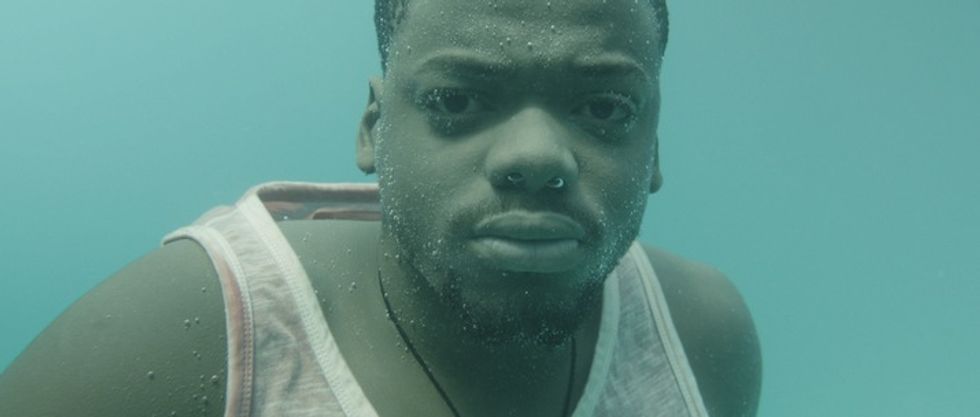From Architecture to Animation: Kibwe Tavares on 'Jonah' + his journey into film
Interview with British British filmmaker Kibwe Tavares on the dangers of being pigeonholed & 'Robots of Brixton' and his latest film 'Jonah'
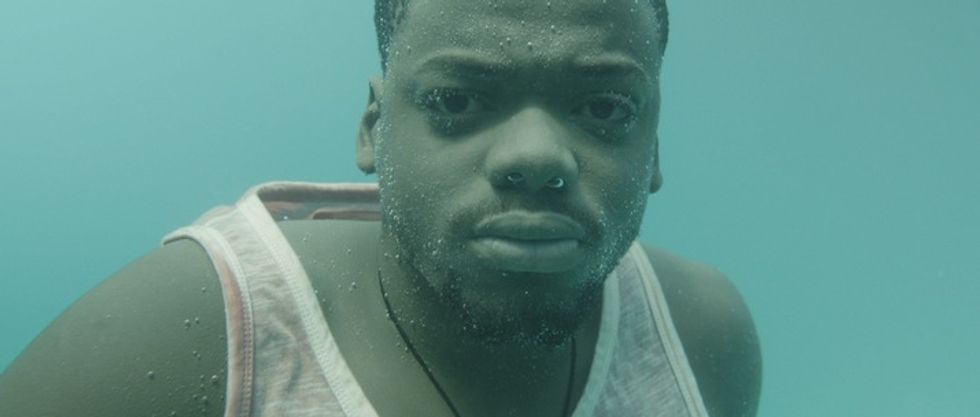
Towards the middle of my Skype chat with filmmaker Kibwe Tavares he explains his first name as the product of "Afrocentric parents" and his last as belonging to "some Portuguese ancestor” that he's reluctant to exhume. His inflections make it clear that he’s a South Londoner, but I’d wondered if his choice to explore tourism in Zanzibar for his latest short Jonah had anything to do with his ancestry. Looking back over his two sci-fi influenced shorts however, it’s clear that Tavares is more interested in time, change and imagined futures. As he explains to TED, where he is a 2013 fellow, this imaginative bent is probably down to his training as an architect: “[w]hen I design a building, I’m designing it for what happens 10, 15 years into the future. And when you start looking at the future, it’s hard not to have that kind of science-fiction element." But there's another question which animates Tavares’ work: what happens when there's no infrastructure to support a person's dreams?
Born in South London in the 1980s, it’s perhaps unsurprising that Tavares’ first film, Robots of Brixton, should take on a seminal moment in Margaret Thatcher's regime: the Brixton Riots. For over a decade, Thatcher’s government presided over a series of drastic policy shifts which privileged private enterprise at the expense of public assets and entrenched urban poverty. Although the pained populace responded with strikes, riots and protest, the resonances continue to be felt today. Robots of Brixton, travels into London's dystopic future where the overworked, underpaid, and overpoliced classes who rioted throughout the ‘80s are not Caribbeans, West and East Africans, or miners, but robots. Interweaving animated scenes of the imagined 2050 crisis with photographs of the 1981 riots, the film suggests the cyclical nature of disenfranchisement. Robots, which was Tavares’ final thesis project for UCL’s architecture school, went viral, won Sundance's Special Jury Award for Animation Direction and following the riots of summer 2011, it came to seem almost prescient.
The success opened up further opportunities in film, and before long Film 4 were calling asking what he wanted to make next. His vague answer: "Er…I've got this idea about a fish." His latest short, Jonah (also Sundance selected) explores the impact of tourism in Zanzibar, and although Tavares recalls a "mini-riot" just before he started shooting, there's no civil unrest. But like the robots of his debut, his beach boy characters Mbwana (Daniel Kaluuya & Louis Mahoney) and Juma (Malachi Kirby) are restless, and when they photograph an unusual fish by accident, they use the image to make their small town a place worth visiting. Using stunning visual effects, Jonah shows the town's transformation from a place too small for these young men's ambitions, into a "seedy, capitalist tourist trap." We spoke with the filmmaker about his work, straddling class divisions in contemporary Britain, film distribution and his future in cinema. Scroll down to read the conversation and to watch both Jonah and Robots of Brixton in full.
* Watch Jonah (2013) in full
OKA: Zanzibar’s main income comes from tourism, and Jonah imagines some of the future fallout of that industry in a way that seems both specific to Tanzania and more general. How specific did you want to be to place and qhat questions were you exploring with the film?
Kibwe Tavares: I wanted to chart how things are really changing. My first idea was set in Lamu, Kenya where they’re building a huge container port and there’s going to be a big shipping lane. I was going to set the film in a time after that shipping lane has been created to see what effect it would have on Lamu. It was the story of a lone fisherman who is eventually the only one still fishing in a strange dystopian place. But when we moved away from Lamu to Zanzibar - because of security issues - I didn’t want to just put another narrative on a different place. The industry that’s growing in Zanzibar is tourism, so I was looking at its effects, both positive and negative. It’s a storyline that follows the character’s life: you see him as a young beach boy who desperately wants tourism to come, and then when it comes, it’s not all that it’s cracked up to be.
OKA: Robots of Brixton was your first film, and it’s almost entirely animation. What was it like creating Jonah, which is a mix of live action and visual effects? And what was your experience shooting in Zanzibar?
KT: It was hard, and it was really guerilla. I chose to work with British actors because it was my first time working in performance so I wanted to have the most amount of time to rehearse with the guys. The shoot was very technical with all the animation elements but I knew what shots I wanted to get; I’d planned it out quite religiously. It was tricky: we had funding but we didn’t have infinite amounts of money, so it was a very reduced crew, everything was new for a lot of us. Which was cool - there was real energy on set - but it was also the most stressful thing I’ve ever done. Our kit was four or five days late and didn’t arrive until the day before shooting, there was a mini-riot before that freaked my producer out [laughs]. It was up and down, but now when I watch the film I see it as an achievement.
OKA: Why did you choose to distribute Jonah online?
KT: We’re distributing it online because I think we’re interested in the most people seeing it. We want people to see it at the cinema but sometimes festival circuits limit it to just industry. And after the success of Robots of Brixton I wanted to build on that so that hopefully by the time I’ve made a feature film people will want to go and see it rather than keeping it in small circles. So opening it up and putting it out there is the plan.
* Watch Robots of Brixton (2011) in full
OKA: You've said that your 2011 film, Robots of Brixton came out of questions you had about your identity, specifically as a university-educated black Briton. What were some of questions you were asking when you made that earlier film?
KT: I made Robots as my final thesis piece, to look at how migrant cultures reappropriated their space. I used it as an opportunity to redesign Brixton but also to be propositional about what I was suggesting. Something I noticed while I was travelling in East Africa was the segregation between tourists and local people. I felt strange. None of the locals expected me to be a tourist because I was black - but I was staying in these weird campsites which were really isolated - so I was in Africa but surrounded by white people. Somehow I was the only black guy in a very black place. Now that’s quite normal for me - to be the only black guy in the room, or at a party. But it's very different from when I was growing up. As you go down this architecture path, slowly, slowly, slowly, you’re taken into a different world. I was thinking about that, looking at race, and what happened to migrant populations. I looked at the Brixton Riots as something that happened right at the start of my life. When they happened [1981], it would have been quite rare to see a young black academic, and still is, although less so, but at this level we’re still quite rare. So I was just looking at what’s changed, and trying to retell that story which I felt was important to my own story. But I wanted to do it in a way that was a bit less “black” – which was a bit more accessible, which had a wide audience – from schoolkids to academics, to people just into sci-fi. So it became very broad but also had quite an important meaning to me. So many people have that experience of being other. Not everyone – but a big chunk of people - always feel like the outsider. That’s why abstracting it allowed it to be a project that doesn’t have so much baggage. And I think that’s one of the reasons it was successful.
OKA: What are some of your influences and inspirations? You don't have to name filmmakers only, given that influence isn’t linear or straightforward, but often multifaceted and multidisciplinary...
KT: I used to be well into anime and manga stuff, and I wasn’t that mad into sci-fi. It's really broad. My architecture’s one influence, and architects are probably bigger influences than film directors. I used to be into garage music. Right now I’m well into my brother’s band called Murkage and they’re noisy, loud dubstep [laughs]. I think it’s the sum of all of these things but probably my biggest influence has been travelling. Studying architecture I'd get these long summers and I’d work for half of them and go away for the other half. After six or seven years that’s a lot of trips meeting different people with different stories. Those long summers were the most influential part of defining what I was interested in and my approach. And architecture. You take on all these references, you’re almost like a sponge.
OKA: What are you excited about in film, architecture, music? Are there other artists you'd want your work to be considered in conversation with? Or do you feel that others aren’t saying what you're trying to say with your work?
KT: In film what I’m trying to do is talk about those things that are close to me but in a much broader sense, in a way that isn’t too heavy, that's accessible. I think there are lots of people doing good things in film but it’s very niche, so people don’t see it. Things are often labeled: “that’s a black film, or that’s a film about immigration.” I’m trying to tow that line - taking it bigger than niche, but deeper than a commercial sellout. I think it's possible.
Stills from Jonah (2013)
